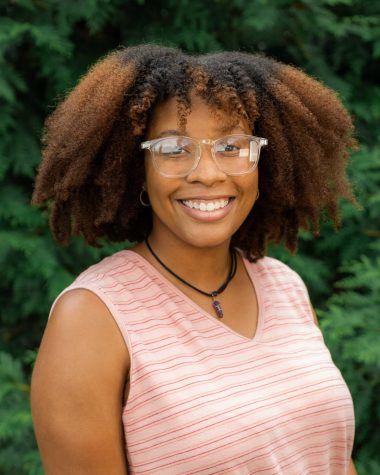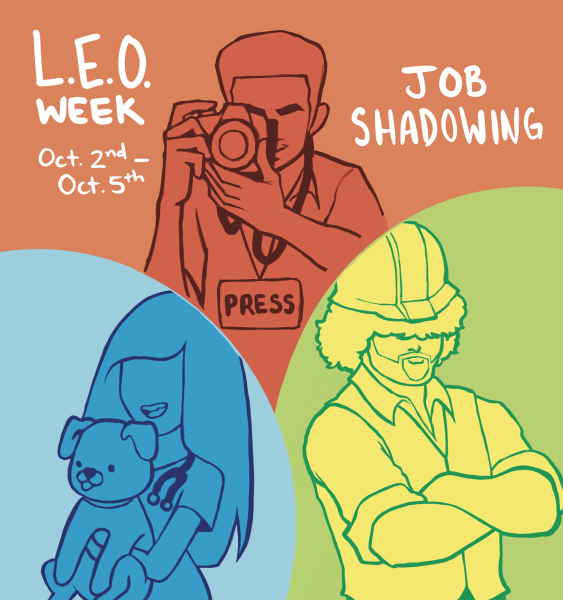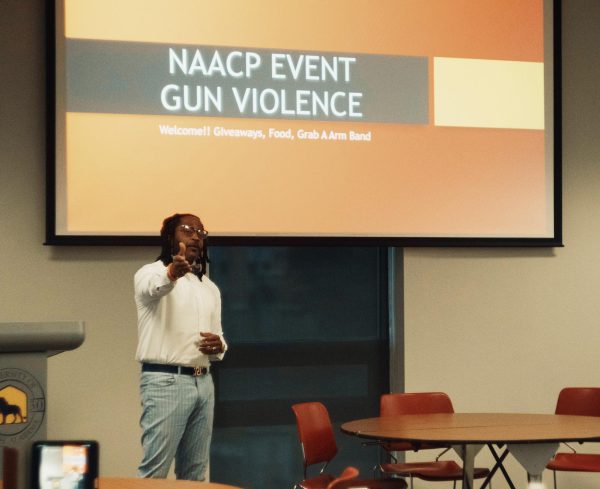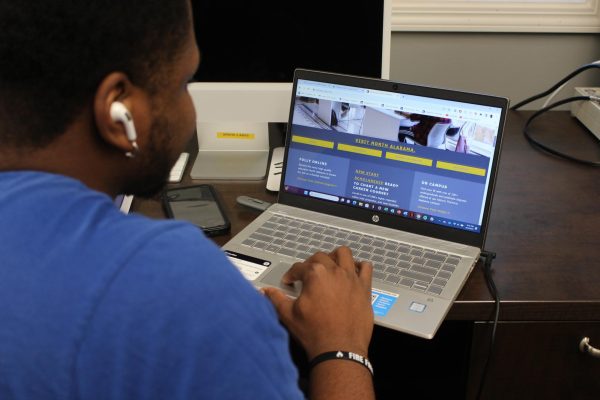Professor Joseph: ‘Don’t be afraid to ask for help’
February 27, 2022
The University of North Alabama is home to many assistant, associate and adjunct professors with different backgrounds and lifestyles. On the bottom floor of Willingham Hall, closed off in his office, sits Justin Joseph, an assistant professor for Criminal Justice. Joseph
pecks away at the keys of his computer doing what he does best … researching. This may seem a bit far-fetched to say, but there is truth in it. For if it had not been for Joseph’s curiosity and his hunger for research, he might not be where he was today. Joseph grew up in Zone 6 of East Atlanta in a single-parent home. He spent the majority of his life watching his mom work to provide for the family and once he was old enough to work, he did the same.
“I have to give respect to my mom because she was a very strong woman,” Joseph said. “She always was working and I think that [seeing her do this instilled the same hard work ethic in me.” Joseph admitted that in having to work and look after his little sister, he had to grow up a lot sooner and be more conscious of the decisions he Tori Bailey, Station Manager, of WZZA points to the bullet hole left behind by a local shooting incident with the KKK in the 70s.
“It made me very internally driven to not only get myself out of that situation, but also to at least provide a different path [for myself] than what my family’s history was,” Joseph said. “It also made me really compassionate and understanding. My upbringing made me more open-minded and made me not so quick to judge a person or their situation.”
Joseph said he saw what happened to some of his friends. He, too, was inches away from making their same decisions. But instead, he decided to start taking older and wiser people’s advice. “I was a division 1 athlete [as an undergrad],” Joseph said. “I thought I was going to go pro. [Teaching] wasn’t even close to what I wanted to do. What got me on my path was my professor was going over psychopathy.”
One day in class while studying an image of a Hispanic gang member, Joseph posed the question, “How do you know that [psychopathy] is not because of people’s environment?’ He gave his professor an example of a person’s cut-throat mentality in Zone 6.
“I told her where I’m from, it isn’t anything personal if I stomp your teeth into the curb,” Joseph said. “I’m not going to show empathy because [others] will think I’m soft. I asked [my professor], ‘Are they considering growing up in these environments and what you have to do to survive?’ My professor said that they had never thought about it like that and challenged me to change the line of thinking.”
There have been other instances that have pushed Joseph further into his research. After he was unable to get into a clinical psychology program in graduate school, Joseph turned to his mentor for help.
“The only reason that I wanted to do clinical psychology was to have the freedom to use some of the instruments to measure psychopathy,” Joseph said. “[My] mentor told me that I could do my research in criminal justice because [they felt that it would] fit better.”
Joseph ended up taking his mentor’s advice.
He acknowledged that he could have been stubborn and waited years to get into a clinical program but instead, he chose to get his Doctor of Philosophy (PHD) in criminal justice and still pursue his research interest.
“It was worth it,” Joseph said. “Being able to conduct my study helps people. It’s not about me. It’s about who I can help.”
With his PHD in criminal justice, Joseph has the freedom to research whatever he likes. Currently, he is using it to conduct a study to see
how psychopathy influences potential parole decisions. To aid in this study, Joseph has placed posters around campus with QR codes, hoping to get students’ input.
“The label psychopath is associated with negative connotations all the time so the goal of the study is when students are presented with this word, how they’re going to react?” Joseph asked.
“Are they going to be harsher if they see that a psychopath was given a chance even though their moral code is changed? The goal is once we have a better understanding of parole decisions, [to define] what makes a psychopath?”
Joseph accredits his background for his peaked interests and workaholicism. “There are a lot of people who think that all a professor does is come [to the university], teach and leave,” Joseph said. “No, when you get your PHD you’re trained to be, in my field, a social scientist.”











